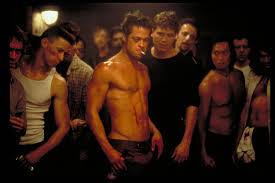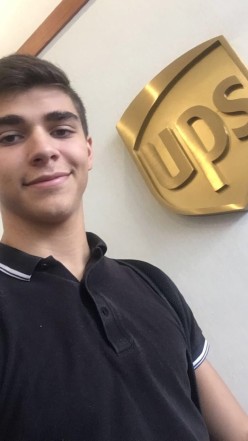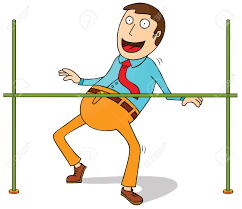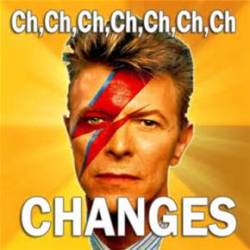Meaning in Midlife
July 1, 2020
“Ultimately, man should not ask what the meaning of his life is, but rather must recognize that it is he who is asked. In a word, each man is questioned by life; and he can only answer to life by answering for his own life; to life he can only respond by being responsible.”
― Viktor E. Frankl, Man’s Search for Meaning
Frankl published his famous book documenting his beliefs, thoughts and observations about his survival of the brutality and inhumanity of Nazi concentration camps to which many of his fellow prisoners succumbed when he was 41, just entering midlife.
More than any other theory or insight, it is Frankl’s that resonates with me most about our task at midlife. It is our responsibility to give our lives meaning, not the world’s chore. The external world will offer no such gift, though many will wait for that sign. Purpose won’t fall into our laps. Meaning won’t be created through timidity or accident. Lasting fulfillment will not be derived through vapidity, addiction, vacuous pleasure-seeking, avoidance, cautiousness or self-protection.
We must examine ourselves, take risks and be bold to create meaning, because, as Frankl concludes, that is what life expects from us. There is no one or nothing else to blame for those who come to this soul-crushing conclusion: “What’s the point?” Or this: “Life isn’t fair.” And: “Is this all there is?”
Those represent abdication of responsibility (and a license to shirk duties, sabotage relationships, indulge addictions, avoid self-reflection and stubbornly resist change, as if one’s thinking and behavior is intractable), for meaning is not bestowed on us, just because we are alive. It is cultivated through intention, commitment and effort, and often through suffering (as Frankl experienced), adversity, struggle, failure and disappointment. It is also a choice. It is up to each individual to believe his life matters.
These truths are hard to realize in our 20s and into our 30s, when we are letting go of youth, seeking a good time, chasing sex, courting love, coveting pleasure, repelling our frightening introduction to adult boredom, monotony and obligation, and sensing certain hopes and dreams dissolving. At the same time, we are discerning an occupation and career path, starting a family and finding our place in society. We may remain blissfully ignorant of, or willfully oblivious to, our blind spots concerning the ultimate questions life asks of us, as Frankl posits.
I’ve been a licensed professional counselor for nearly three years now. It has given me a window onto the vicissitudes of midlife. I’ve seen people in their 40s and 50s who  literally say they don’t know who they are, their identities tied up in someone else or poorly developed through desperate attempt to flee from a past of deprivation; who were tormented so much in childhood they can’t imagine being deserving of pursuing goals or a dream; who feel anxious, aimless and alone amid the crumbling of marriages and launching of adult children; who want to find happiness but have no idea how to define it; who struggle to escape the grip of abusive relationships; and who lose jobs, status, and financial security due to addiction.
literally say they don’t know who they are, their identities tied up in someone else or poorly developed through desperate attempt to flee from a past of deprivation; who were tormented so much in childhood they can’t imagine being deserving of pursuing goals or a dream; who feel anxious, aimless and alone amid the crumbling of marriages and launching of adult children; who want to find happiness but have no idea how to define it; who struggle to escape the grip of abusive relationships; and who lose jobs, status, and financial security due to addiction.
Meaning in midlife is like trudging through a bog; those who use resources and ingenuity to get to the water will feel a lighter sense of being, more buoyant; those who are avoidant, stubborn or resistant will sink further into the quagmire and will churn laboriously, feeling hopelessly stuck.
Meaning serves us best when it is developed from within, rather than from performing the largely futile mental gymnastics to determine how the universe will define it for us, concludes a 2019 study on meaningfulness. The University of California, San Diego School of Medicine study, published online in the Journal of Clinical Psychiatry, found the presence of meaning in life is associated with higher levels of happiness, better health, and possibly longevity, while the search for meaning in life may be associated with worse mental well-being and cognitive functioning.
“When you find more meaning in life, you become more contented, whereas if you don’t have purpose in life and are searching for it unsuccessfully, you will feel much more stressed out,” said the study’s senior author Dilip V. Jeste, MD, UC San Diego’s associate dean for the Center of Healthy Aging.
As for me, I’m trying my best to live with a sense of meaning. It is a constant challenge. I’m grateful I made a career change to counseling in midlife; working with people to help them improve their lives and create meaning has increased meaning for me. That – and trying to develop, maintain and enhance relationships, always an area of struggle for me and in which I have boundless opportunity for improvement – gives me a sense that my life matters.
In the eight years since I wrote the first post for the MidlifeDude blog that became this book (All That’s Gone and Still Remains: Reflections of a Man at Midlife), I’ve experienced many of the transitions typical of midlife, described herein, inevitably re-imagining myself and re-inventing my life, with all the fears, risks and doubts that brings.
In addition to changing careers, I’ve experienced a major physical health challenge; the death of my mother and gradual decline of my father; failure to reach a dream (winning political office); the evolution of my two kids from teens to independent adults (Rebecca is an English teacher in France; Daniel is a computer software engineer for a large investment firm); confrontation of difficult and life-altering choices; dread of stagnation; a divorce (again); a geographic move to essentially start over; unanticipated singlehood and dating (with equal parts hope and trepidation); struggles with loneliness; worries about finances and retirement (though I have little interest in retiring); my own slow but sure physical falloff; and, at 57, the no longer deniable reality of mortality.
Without meaning in midlife, I don’t know where I would be (in an emotional, mental and spiritual sense), and I shudder to think about that prospect. My task now and forevermore is to hold onto it any way I can.

 from my life – figuratively and literally – so that all I have left and all that I focus my attention and physical, mental and emotional energy upon are things that add value and meaning to my life. The Minimalists love the book/movie Fight Club, about an underground, subversive group of men breaking free from the soul-numbing shackles imposed by societal, cultural and corporate expectations, citing this quote from Fight Club’s charismatic leader Tyler Durden: “The things you own end up owning you.”
from my life – figuratively and literally – so that all I have left and all that I focus my attention and physical, mental and emotional energy upon are things that add value and meaning to my life. The Minimalists love the book/movie Fight Club, about an underground, subversive group of men breaking free from the soul-numbing shackles imposed by societal, cultural and corporate expectations, citing this quote from Fight Club’s charismatic leader Tyler Durden: “The things you own end up owning you.”
 but I am earning a good paycheck here, and in general it resolves this cognitive dissonance in favor of the familiar. At the bottom of every dilemma is fear.”
but I am earning a good paycheck here, and in general it resolves this cognitive dissonance in favor of the familiar. At the bottom of every dilemma is fear.” teamwork and communications that comprise effective work environments; play a role in his maturation; and help him build a financial nest egg before launch into the adult world, all while he is still a teenager. That’s what Brown can do for me – and my 19-year-old son Daniel.
teamwork and communications that comprise effective work environments; play a role in his maturation; and help him build a financial nest egg before launch into the adult world, all while he is still a teenager. That’s what Brown can do for me – and my 19-year-old son Daniel.

